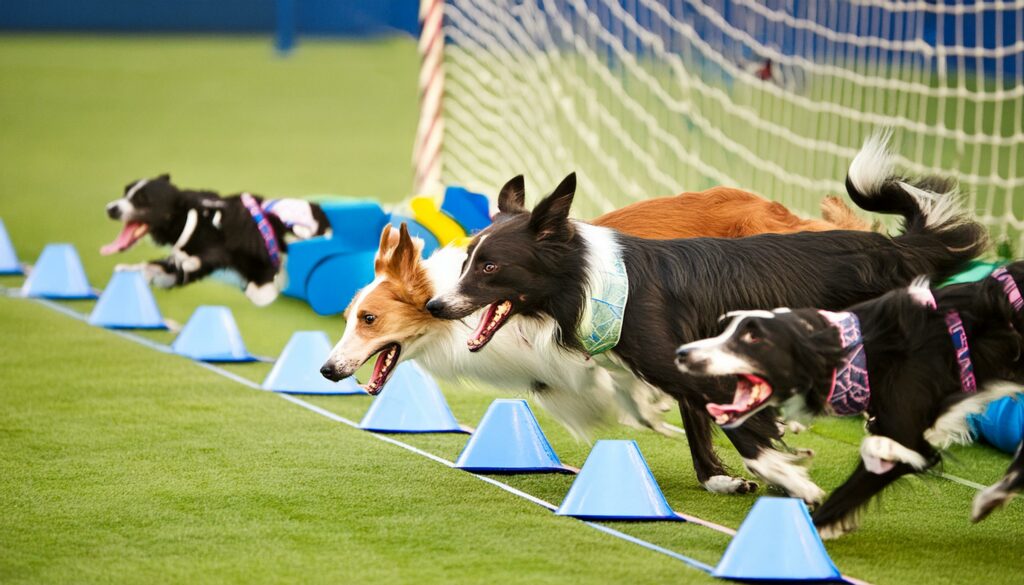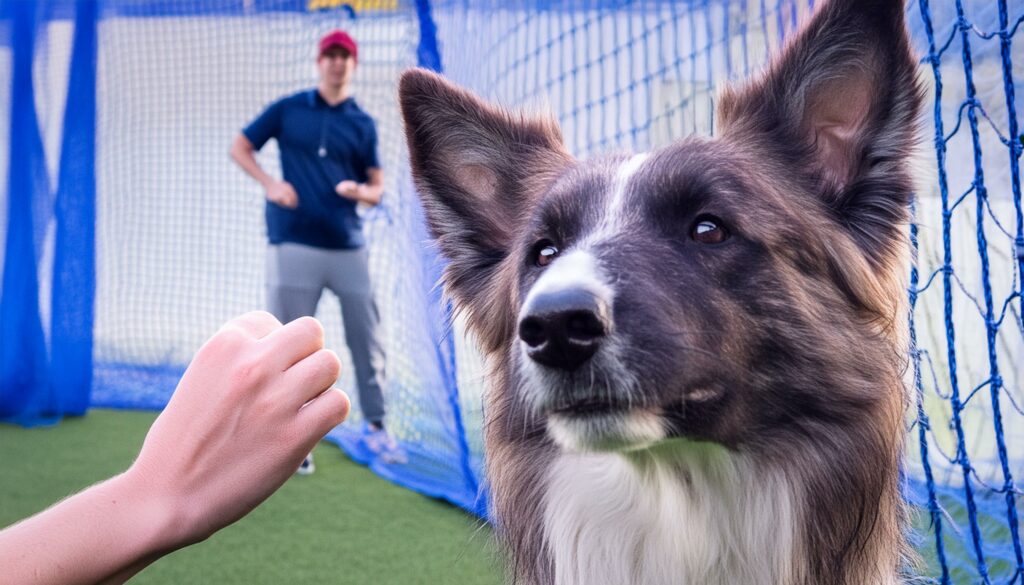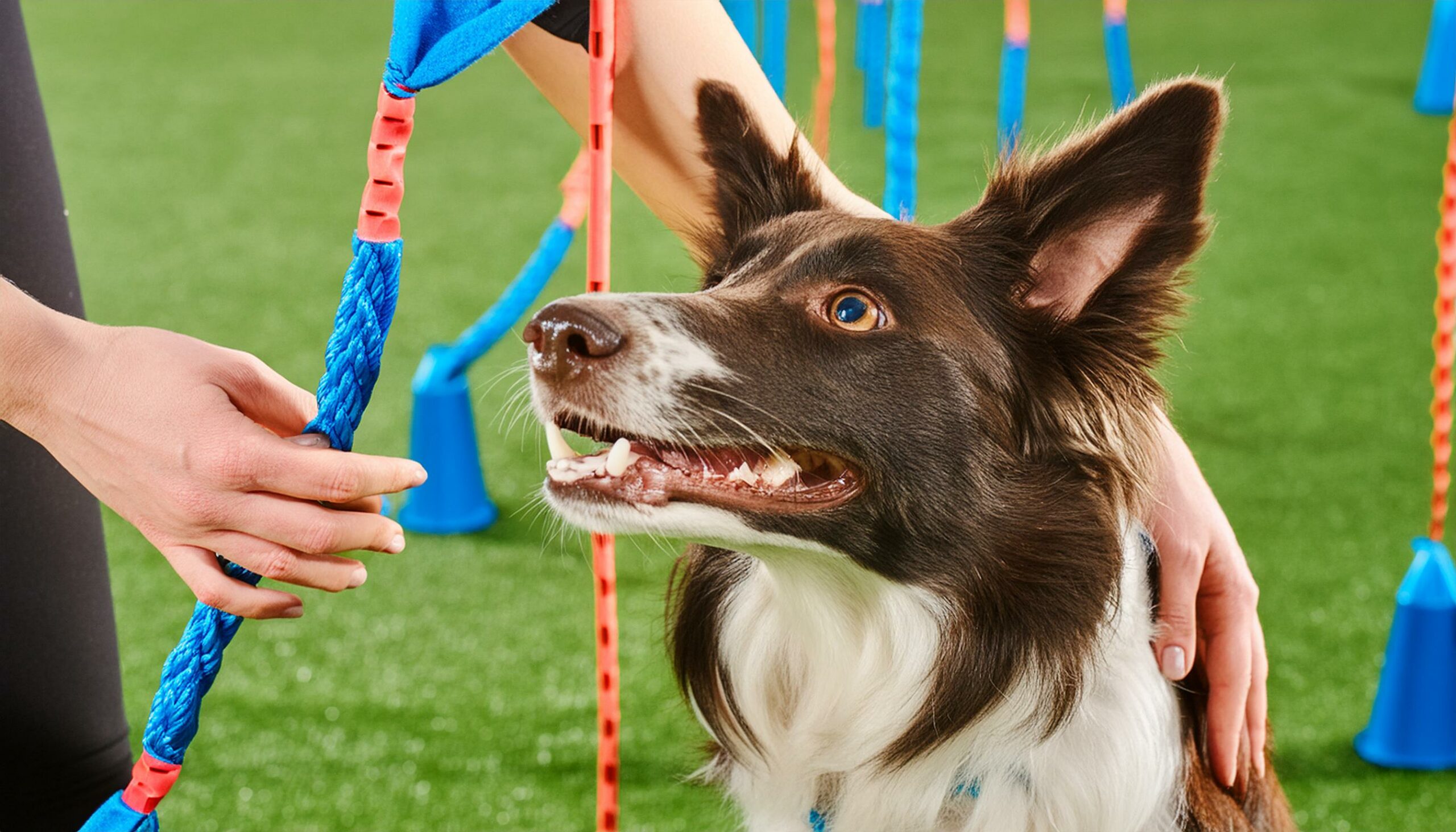Border Collies are renowned for their intelligence, agility, and boundless energy. However, without proper training, their exuberance can sometimes lead to behavioral challenges. Whether you’re a seasoned dog owner or welcoming a Border Collie into your family for the first time, effective training is essential for a harmonious relationship with your furry friend.
Introduction to Border Collies
Border Collies are a breed of working dogs originally bred for herding livestock, particularly sheep, in the border regions between England and Scotland. Their keen intelligence and unwavering focus make them exceptional partners for various activities, including obedience trials, agility competitions, and of course, herding.
Understanding Border Collie Characteristics
Intelligence and Trainability
Border Collies are widely regarded as one of the most intelligent dog breeds. Their ability to learn commands quickly and their eagerness to please make them highly trainable. However, their intelligence can sometimes lead to stubbornness, requiring patience and consistency in training.
Energy Levels and Exercise Requirements
Border Collies are incredibly energetic dogs that thrive on physical and mental stimulation. Without sufficient exercise, they may exhibit destructive behaviors out of boredom. Daily activities such as long walks, runs, or engaging in agility courses are essential to keep them happy and healthy.
Basic Training Principles
Positive Reinforcement
Using positive reinforcement, such as treats, praise, and toys, is crucial in training Border Collies. Rewarding desired behaviors encourages repetition and strengthens the bond between you and your dog.
Consistency and Patience
Consistency is key when training a Border Collie. Establish clear rules and routines, and stick to them to avoid confusion. Additionally, patience is essential, as it may take time for your dog to fully grasp commands and behaviors.
Socialization
Early socialization is vital for Border Collies to become well-adjusted and friendly companions. Expose them to various people, animals, and environments from a young age to prevent fearfulness and aggression later in life.
Getting Started with Training
Establishing a Routine
Create a consistent training schedule that includes daily exercise, playtime, and training sessions. Consistency helps reinforce good behaviors and prevents boredom.
Crate Training
Introduce your Border Collie to a crate as a safe and comfortable space. Crate training aids in housebreaking, prevents destructive behavior when unsupervised, and provides a sense of security for your dog.
Housebreaking
Use positive reinforcement and a consistent schedule to housebreak your Border Collie. Take them outside frequently, especially after meals and naps, and reward them for eliminating outdoors.
Teaching Basic Commands
Sit
Start by holding a treat close to your dog’s nose and slowly raise it above their head. As their head moves up, their bottom will naturally lower into a sitting position. Once seated, give the command “sit” and reward with the treat.
Stay
Begin with your dog in a sitting position. Hold your hand up, palm facing your dog, and give the command “stay” while taking a step back. Return immediately and reward your dog for staying in place.
Come
Call your dog’s name followed by the command “come” in an upbeat tone. Encourage them to approach you by backing away or crouching down with open arms. Reward them enthusiastically when they reach you.
Down
Start with your dog in a sitting position. Hold a treat in your hand and lower it to the ground in front of them. As they follow the treat, say the command “down” and reward them when they lie down.
Advanced Training Techniques

Agility Training
Border Collies excel in agility courses due to their athleticism and intelligence. Set up obstacles such as tunnels, jumps, and weave poles and guide your dog through the course using verbal cues and hand signals.
Herding Instincts
Channel your Border Collie’s natural herding instincts by introducing them to sheep or other livestock under controlled conditions. Professional herding classes can help hone their skills and provide mental stimulation.
Mental Stimulation
In addition to physical exercise, provide your Border Collie with plenty of mental stimulation to prevent boredom. Interactive toys, puzzle feeders, and training games can keep their minds engaged and satisfied.
Addressing Common Behavioral Issues
Barking
Border Collies may bark excessively if not properly stimulated or trained. Identify the cause of the barking, whether it’s boredom, attention-seeking, or territorial behavior, and address it through training and enrichment activities.
Chasing
Their herding instincts may cause Border Collies to chase moving objects, including cars, bicycles, or wildlife. Teach them a reliable recall command and provide alternative outlets for their energy, such as fetch or agility.
Separation Anxiety
Border Collies are prone to separation anxiety when left alone for extended periods. Gradually acclimate them to alone time, provide comforting toys or blankets, and consider enlisting the help of a professional trainer if the issue persists.
Training for Specific Activities
Obedience Trials
Enroll your Border Collie in obedience classes to refine their skills and prepare for competitions. Focus on precision and reliability in executing commands under various distractions.
Sheepdog Trials
For those interested in showcasing their Border Collie’s herding abilities, sheepdog trials offer a platform to demonstrate precision and control in moving livestock through a course.
Flyball
Flyball is a fast-paced relay race for dogs that involves jumping over hurdles, triggering a ball dispenser, and retrieving the ball. Border Collies’ speed and agility make them excellent contenders in this exciting sport.
Maintaining Training Consistency

Regular Practice Sessions
Continuously reinforce training by incorporating short practice sessions into your daily routine. Regular repetition helps solidify commands and behaviors over time.
Monitoring Progress
Track your Border Collie’s progress and adjust training techniques as needed. Celebrate successes and remain patient with setbacks, as each dog learns at their own pace.
Adjusting Techniques as Needed
Stay flexible in your approach to training and adapt techniques based on your Border Collie’s responses and behaviors. What works for one dog may not work for another, so be willing to try new methods.
Ensuring a Happy and Healthy Border Collie
Proper Nutrition
Provide your Border Collie with a balanced diet tailored to their age, size, and activity level. High-quality food, supplemented with treats in moderation, supports overall health and vitality.
Regular Vet Check-ups
Schedule routine check-ups with your veterinarian to monitor your Border Collie’s health and address any concerns promptly. Vaccinations, parasite prevention, and dental care are essential components of their well-being.
Mental and Physical Exercise
Engage your Border Collie in a variety of activities to stimulate their mind and body. Incorporate daily walks, interactive playtime, and training sessions to keep them physically fit and mentally sharp.
Conclusion
Training a Border Collie requires dedication, patience, and a deep understanding of their unique characteristics. By employing positive reinforcement, consistency, and plenty of mental and physical stimulation, you can cultivate a strong bond with your furry companion and unleash their full potential.
FAQs
How long does it take to train a Border Collie?
Training duration varies depending on the individual dog and the complexity of the behaviors being taught. Consistent practice and positive reinforcement can expedite the training process.
Are Border Collies suitable for first-time dog owners?
While Border Collies are incredibly intelligent and trainable, their high energy levels and herding instincts may pose challenges for inexperienced owners. Proper socialization and training are crucial for success.
What are some common mistakes to avoid when training a Border Collie?
Avoid using harsh punishment, as it can damage the trust between you and your dog. Additionally, inconsistent training methods and neglecting mental stimulation can hinder progress.
How do I prevent my Border Collie from herding children or other pets?
Teach your Border Collie a strong recall command and redirect their attention to appropriate activities when they exhibit herding behaviors. Supervise interactions with children and other pets to prevent accidents.
What should I do if my Border Collie exhibits behavioral issues despite training?
If behavioral issues persist despite consistent training efforts, seek guidance from a professional dog trainer or behaviorist. They can provide personalized strategies to address specific challenges.
